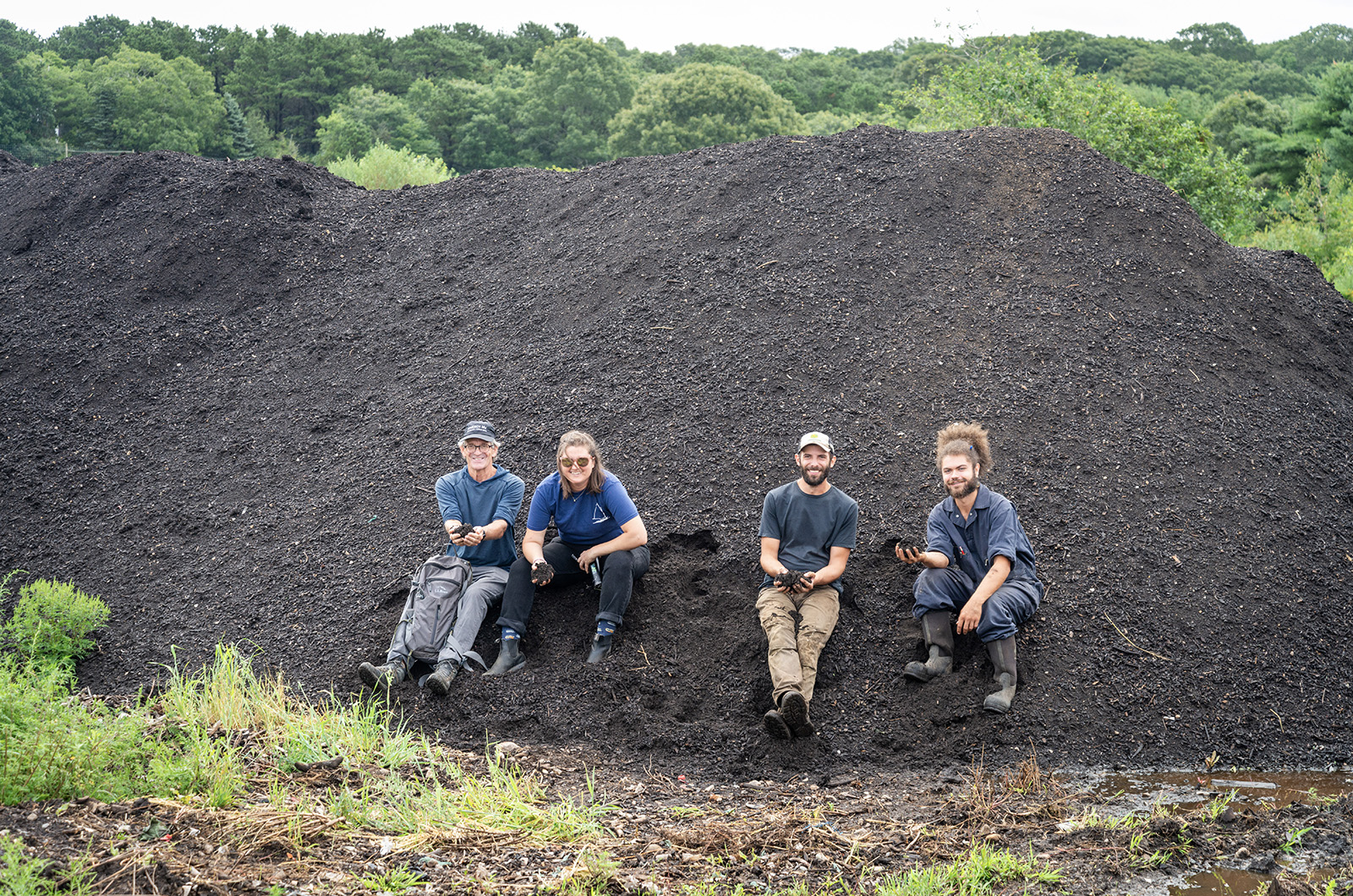The Vineyard’s long-running food waste program is set to end next month, when it loses its pilot composting location at the Island Grown Initiative farm in Vineyard Haven.
“They’ve been really generous, but all pilot projects do end up coming to an end,” said Woody Filley, project manager for the MV Organics Recovery Committee, which has run the composting program since it was established in 2016 by the Martha’s Vineyard Vision Fellowship.
Sophie Abrams Mazza was the committee’s first leader, followed by Eunice Youmans and then Mr. Filley, who took over three years ago.
The composting initiative will come to a close on Sept. 1, but the committee has been searching for another location to continue it. Mr. Filley said the program has taken more than three million pounds of household and restaurant scraps out of the Island’s waste stream over the past eight years.
“The Island produces an estimated 6,500 tons a year, and any centralized effort to process the waste will take time to ramp up,” Mr. Filley said.
One potential location has been identified, he said, and the committee is working with an ecological consultant specializing in solid waste to evaluate the property.
But for now, Mr. Filley said that after Labor Day Islanders will no longer be able to drop kitchen scraps off at town transfer stations or bring them directly to Island Grown’s Thimble Farm for composting, as they have for the past eight years.
Noli Taylor, co-executive director of Island Grown Initiative, added that the project’s in-vessel digester — a slowly-churning sort of cement mixer that composts food waste efficiently, without emitting rotten odors or providing access to birds and rodents — has reached the end of its usefulness and will be leaving the farm later this year.
“We will continue composting on site, utilizing manure from nearby horse farms to reduce nitrogen loading in the ponds, leaves and wood chips from town DPWs and farm-generated green waste, which does not require an in-vessel system,” Ms. Taylor told the Gazette by email.
With no central composting facility available, Island restaurants will be exempt from a state law requiring them to reclaim food waste if they produce more than half a ton of it a week, according to Vineyard Vision Fellowship executive director Melissa Hackney.
“There are a lot of commercial establishments on the Vineyard that [the law] applies to, but they’re only going to enforce it if there’s a place for them to send the food scraps,” she said.
“Even if people do pick up the food waste [after Sept. 1], there will be nowhere to take it because there’s no one on the Island that can accept it,” Ms. Hackney said. “It’s heartbreaking.”
Ms. Hackney sounded a more optimistic note as she described advances in composting technology that make it possible to process food waste on site instead of at a centralized location.
The Vision Fellowship is currently working with the Martha’s Vineyard Public Charter School to install a contained composting device that can process waste from the school’s kitchen and garden, she said, with other Island campuses to follow.
“Any schools that are interested in participating will be invited to do so,” Ms. Hackney said, adding that the equipment will be funded through grants and philanthropy.
“Schools will not be required to fundraise to participate in this project,” she said.
There is no timetable yet for when composting alternatives will be available on the Vineyard, but Ms. Hackney said she and Mr. Filley are both “laser-focused” on solutions.
“I think within a few weeks, we’ll have some more news,” she said.








Comments (4)
Comments
Comment policy »